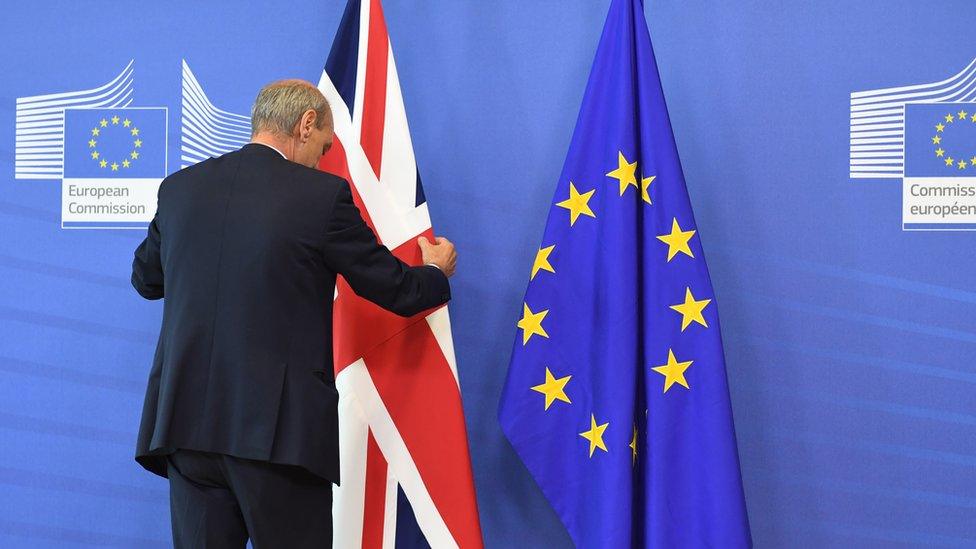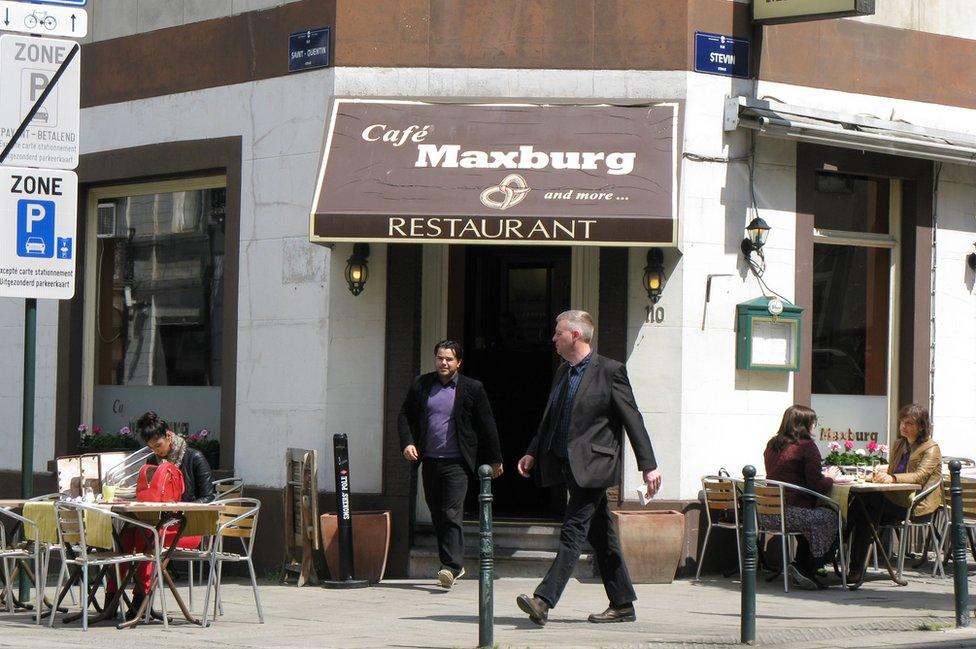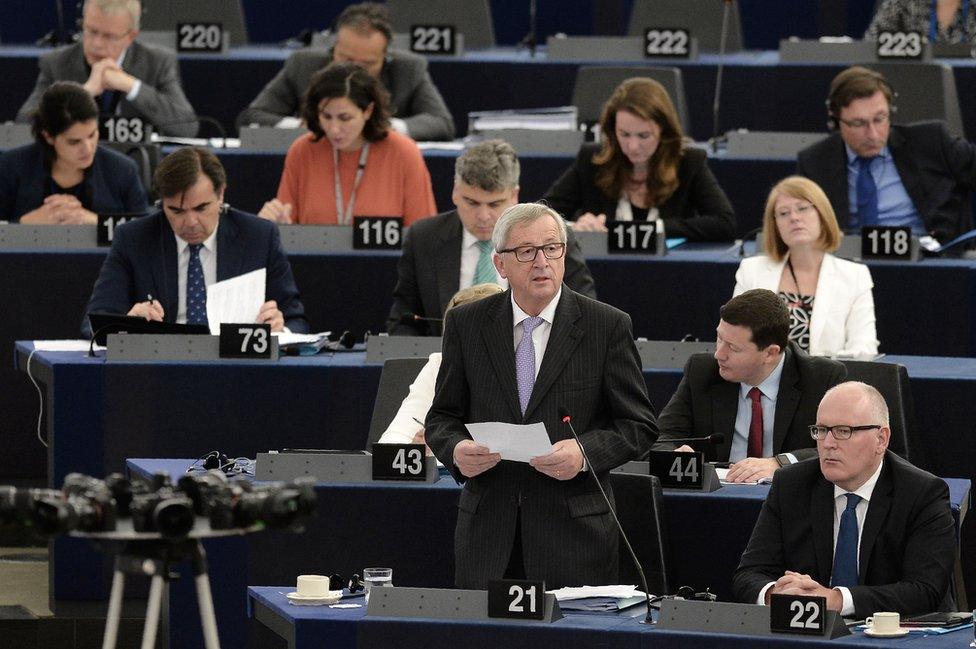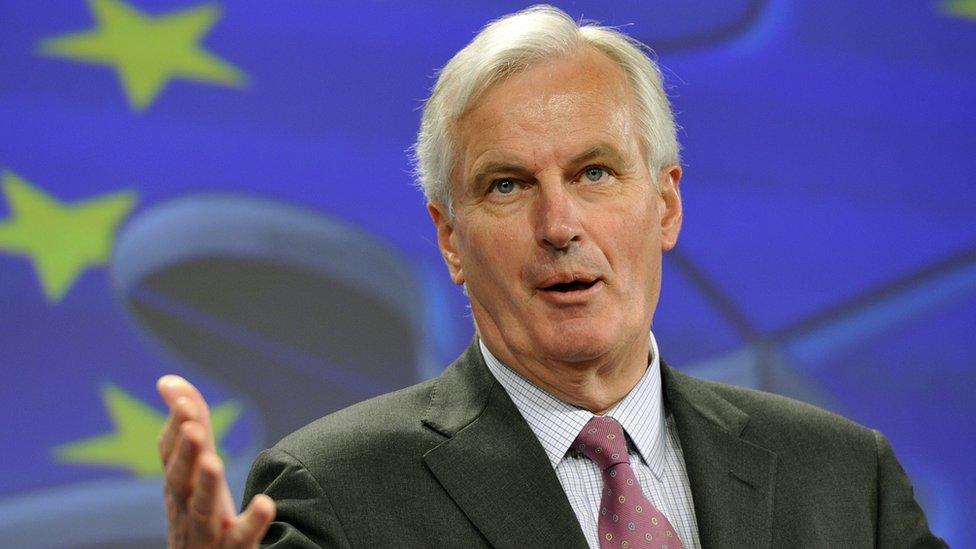EU Brexit: Uncertainty gives Brits in Brussels the blues
- Published

Brussels is shut down for the summer and the UK has yet to trigger the official mechanism for leaving the EU. The result? Brits in limbo.
There is disappointment at the UK Permanent Representation to the European Union (UKREP).
From 2015 about 40 staff were seconded from the UK Foreign Office to prepare for the British six-month presidency of the EU Council, due in 2017. It has been cancelled, meaning much of their work was in vain.
British civil servants in Brussels are also getting to grips with a reorganised Whitehall. Some have been absorbed into the new Department for Exiting the EU - which has acquired the nickname DExEU.
A new Department for International Trade is also being set up. The changes can make it time-consuming to get answers to questions, one official told me. Reports that it is proving difficult to recruit staff to DExEU are firmly denied.

More on Brexit

Influential Brits
In the European Parliament, Prime Minister Theresa May told Conservative MEPs in the last fortnight to be constructive and not to relinquish any positions of influence.
Conservative MEP Ian Duncan was recently asked by the Environmental Committee to remain in his role as Parliament's point-man on a key piece of legislation.
Another MEP says that the committee system could be used to conduct back-channel communications with the European Commission before official Brexit negotiations can begin.
And what about the Commission, often described as the EU's civil service and a dream destination for ambitious administrators?
The bloc's executive arm is obliged to hire people from every member state, roughly in proportion to their national weight in the EU.
The British are under-represented, at around 3% of the 30,000-strong staff.

The British will start saying adieu to the Brussels cafe scene
'You work for Europe'
Commission President Jean-Claude Juncker tried to reassure his British employees with an all-staff email the day after the 23 June referendum.
He wrote: "According to our Staff Regulations, you are 'Union officials'. You work for Europe. You left your national 'hats' at the door when you joined this institution and that door is not closing on you now."
But the handbook makes no mention of what happens if a country leaves the EU, only whether someone retires, resigns or is fired. Mr Juncker has pledged to do "everything he can" to help Brits and their families during the Brexit process.
"I've been working in Europe for nearly a decade. I'm wondering what to do with my career," one British official said.
A former Commission staffer who left before the referendum told me: "What people are worried about is whether they'll ever get promoted. If you're British, who will lobby for you to get the job?"
Yet he predicted that English-speakers would be highly prized.
How does the European Union work?
No precedent
The Commission plans for the UK to play its part until the last possible moment.
Announcing that the new British Commissioner, Sir Julian King, had been handed the anti-terrorism portfolio - the so-called "Security Union" - Commission spokesperson Mina Andreeva said: "The UK is still a member of the European Union.
"And we would expect Sir Julian - but also the UK - to play an active role in European politics as long as it is a member of the European Union."
Sir Julian's confirmation hearing in the European Parliament in September could be the first chance to measure true sentiment towards Britain.

The European Parliament will have to vote on any future EU-UK trade deal
The outspoken Belgian leader of the liberal MEPs, Guy Verhofstadt, said: "I would seriously question whether the nomination of a UK commissioner for the Security Union is the right choice. The UK will soon start the process of leaving the European Union."
Yet under EU law there is no option for a semi-detached member state.
Risk of blockage
Take the European Council - where ministers and prime ministers meet. "There's a real problem if the UK systematically starts to abstain," said the Labour MEP Richard Corbett, an ex-adviser to the previous president of the Council, Herman Van Rompuy.
The voting system often demands a qualified majority - a measure is adopted if countries representing the bulk of the EU's population back it.
"If the UK doesn't vote that's the same as voting against, and that would mean everything being blocked," Mr Corbett added.
Would Britain earn many friends if it brought the entire decision-making process to a halt?
To add to the slightly lifeless atmosphere, the Brussels weather has been dreadful and the nicest bar in the EU quarter is closed for August.
Normality returns in September but what is "normal" now?
- Published30 December 2020

- Published16 May 2016

- Published27 July 2016
